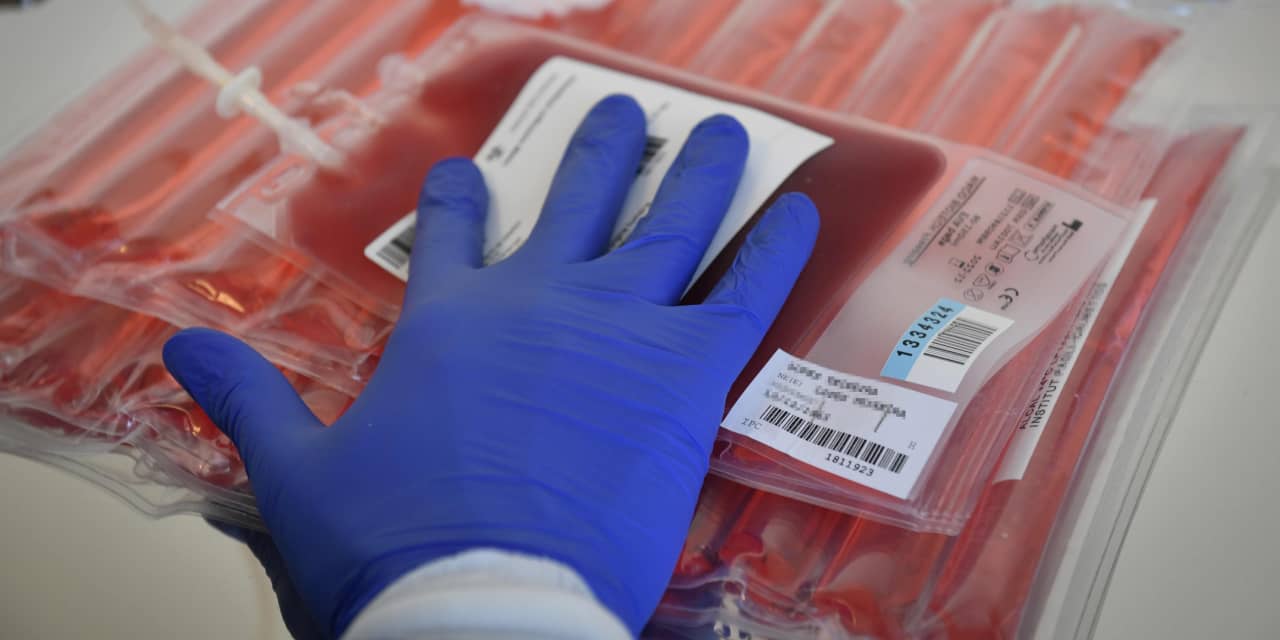Crispr Therapeutics AG
CRSP,
and Vertex Pharmaceuticals Inc.
VRTX,
on Friday got U.S. regulatory approval for a sickle-cell disease treatment based on the transformative gene-editing technology Crispr.
The U.S. Food and Drug Administration approved the treatment, known as Casgevy or exa-cel, for treatment of sickle-cell disease in patients age 12 and older who have recurrent issues with affected red blood cells blocking blood flow.
Casgevy will be priced at $2.2 million, Vertex said in a regulatory filing Friday.
The treatment last month got the world’s first regulatory approval for a Crispr-based medicine when a U.K. regulator approved it for treatment of sickle-cell disease and transfusion-dependent beta thalassemia, a condition that causes severe anemia and dependence on red blood cell transfusions.
Casgevy edits a faulty gene in people with sickle-cell disease, prompting the production of functioning hemoglobin that carries oxygen to the tissues.
The FDA on Friday also approved Bluebird bio Inc.’s
BLUE,
Lyfgenia, a cell-based gene therapy for sickle-cell disease.
“These approvals represent an important medical advance with the use of innovative cell-based gene therapies to target potentially devastating diseases and improve public health,” Dr. Peter Marks, director of the FDA’s Center for Biologics Evaluation and Research, said in a statement.
Sickle-cell disease is an inherited disorder that affects red blood cells, causing them to become stiff and sticky and disrupting delivery of oxygen to the tissues. Roughly 100,000 people in the U.S. have the condition, which disproportionately affects Black people, according to estimates from the Centers for Disease Control and Prevention.
Pricing and accessibility were key concerns for policy experts leading up to the approval. Exa-cel would be cost-effective if priced at up to $2.05 million, the Institute for Clinical and Economic Review said in an August report, noting that “potentially curative gene therapies should and will command a high price.” But sickle-cell disease “heavily affects the American descendants of those who were forcibly brought here as slaves. As such, the U.S. government and U.S. payers have special obligations to ensure access” to the new treatment, ICER chief medical officer Dr. David Rind said in a statement when the report was issued.
Vertex is setting up a network of authorized treatment centers where patients can get Casgevy treatment, a process that requires specialized stem cell transplantation expertise, the company said in a release Friday. Nine facilities in six states and Washington, D.C., are already part of the network, the company said.
Stifel analysts said in a report Thursday, ahead of the FDA’s decision on exa-cel, that the agency’s approval could be meaningful for other Crispr-focused companies. Editas Medicine Inc.’s
EDIT,
experimental cell therapy EDIT-301, for example, “shares many similarities” with exa-cel, the analysts wrote, and the FDA action on exa-cel could be seen as cutting risks for that therapy.
Crispr Therapeutics shares were down about 5% Friday and have climbed 64% in the year to date, while Bluebird bio shares gained more than 7% Friday and have dropped 25% so far this year.
Read the full article here




